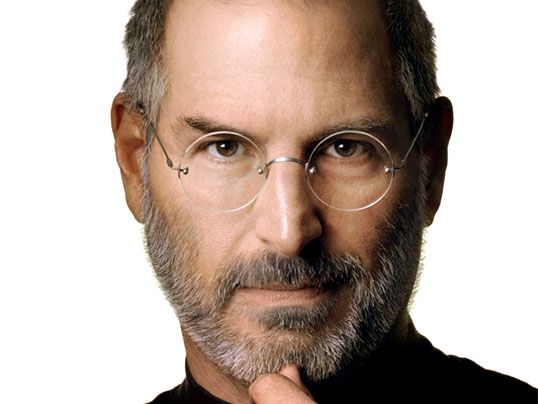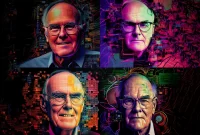Steve Jobs was a man who forever changed the world of technology, transforming the way we live, work, and communicate. As the co-founder and CEO of Apple, Jobs was a true visionary who transformed the company into one of the most successful and innovative in history. But Jobs’ impact goes beyond the realm of technology – he was a cultural icon, whose life and legacy continue to inspire people around the world.
Early Life and Career
Steve Jobs was born in San Francisco in 1955 and was adopted by Paul and Clara Jobs, a middle-class couple. Growing up in Silicon Valley, Jobs was surrounded by technology from an early age. As a teenager, he was already working on electronics projects, including building a frequency counter and a computer with his friend Steve Wozniak.
After dropping out of college, Jobs traveled to India in search of spiritual enlightenment. Upon his return, he started working at Atari, a video game company. In 1976, he co-founded Apple Computer with Wozniak and the company released its first product, the Apple I, the following year.
Apple’s Early Success
The Apple II, released in 1977, was a huge success and helped to establish Apple as a major player in the tech industry. However, Jobs’ abrasive management style led to conflicts with other executives and in 1985, he was forced out of the company he co-founded.
During his time away from Apple, Jobs founded NeXT Computer, which produced high-end computers for the education and business markets. The company struggled to gain market share, but it was during this time that Jobs’ vision for the future of computing began to take shape.
Return to Apple and Resurgence
In 1997, Apple acquired NeXT and Jobs returned to the company as interim CEO. He quickly set about turning the struggling company around, focusing on design, innovation, and user experience. The launch of the iMac in 1998 marked the beginning of a new era for Apple, as the company became known for its sleek design and intuitive interfaces.
Over the next decade, Apple released a string of hit products, including the iPod, iPhone, and iPad. Jobs’ attention to detail and insistence on perfection resulted in products that were not only innovative but also visually stunning. The release of the iPhone in 2007 marked a turning point in the industry, as it revolutionized the way we think about mobile devices and paved the way for the app economy.
Legacy and Impact
Steve Jobs’ impact on the tech industry is immeasurable. His vision and leadership transformed Apple from a struggling computer company into the world’s most valuable company. But Jobs’ impact goes beyond Apple and even technology – he was a cultural icon whose influence can be seen in everything from product design to music.
Jobs was known for his commitment to excellence and his attention to detail, and these values continue to inspire entrepreneurs and innovators around the world. His insistence on simplicity and elegance in design has also had a lasting impact, influencing everything from architecture to fashion.
Despite his successes, Jobs was not without his flaws. His management style was often criticized for being authoritarian and sometimes even cruel. He was known for being difficult to work with and for holding grudges. But despite these shortcomings, Jobs’ legacy is one of innovation, creativity, and daring.
Conclusion
Steve Jobs was a man who transformed the world of technology and left an indelible mark on the cultural landscape. His vision, leadership, and commitment to excellence continue to inspire people around the world. While his management style may have been controversial, there is no denying the impact he had on Apple, the tech industry, and the world at large. Jobs’ legacy serves as a reminder



